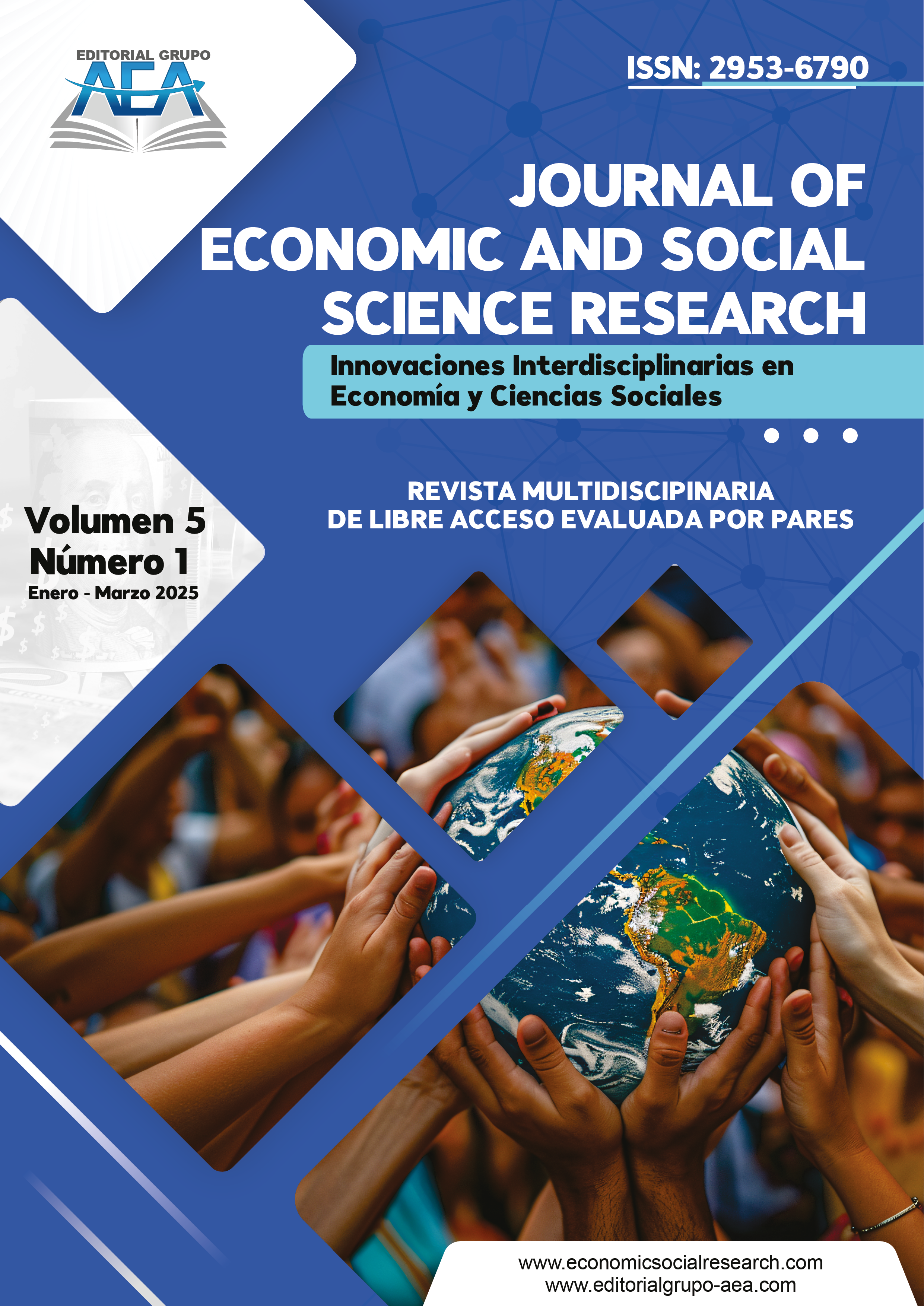Strategies for applying culturally responsive pedagogy in the classroom
Main Article Content
Abstract
Increasing cultural diversity in the classroom poses significant challenges for teachers, who must adapt their pedagogical strategies to serve students from diverse backgrounds. This study uses a literature review to identify and analyze effective approaches to culturally responsive pedagogy (CRP). Key strategies include the incorporation of relevant content that reflects cultural diversity, teacher training in intercultural competencies, and the creation of inclusive environments. The results show that these practices not only improve academic participation and reduce educational gaps, but also promote inclusive and equitable learning. PCR contributes to the integral development of students, increasing their sense of belonging and promoting values of respect and empathy in multicultural contexts. However, its implementation faces challenges such as lack of resources, limited teacher training and homogenizing educational structures. The study concludes that the integration of RCP in the educational curriculum requires the commitment of institutions, public policies and teachers, highlighting its transformative potential to build fairer and more inclusive educational communities.
Downloads
Article Details
Section

This work is licensed under a Creative Commons Attribution-NonCommercial 4.0 International License.
How to Cite
References
Banks, J. A. (2015). Cultural Diversity and Education: Foundations, Curriculum, and Teaching (6.ª ed.). Routledge.
Cajamarca-Correa, M. A., Cangas-Cadena, A. L., Sánchez-Simbaña, S. E., & Pérez-Guillermo, A. G. (2024). Nuevas tendencias en el uso de recursos y herramientas de la Tecnología Educativa para la Educación Universitaria . Journal of Economic and Social Science Research, 4(3), 127–150. https://doi.org/10.55813/gaea/jessr/v4/n3/124 DOI: https://doi.org/10.55813/gaea/jessr/v4/n3/124
Gay, G. (2018). Culturally Responsive Teaching: Theory, Research, and Practice (3.ª ed.). Teachers College Press.
Hammond, Z. (2015). Culturally Responsive Teaching and The Brain: Promoting Authentic Engagement and Rigor Among Culturally and Linguistically Diverse Students. Corwin Press.
Herrera-Sánchez, M. J., Casanova- Villalba, C. I., Moreno-Novillo, Ángela C., & Mina-Bone, S. G. (2024). Tecnoestrés en docentes universitarios con funciones académicas y administrativas en Ecuador. Revista Venezolana De Gerencia, 29(11), 606-621. https://doi.org/10.52080/rvgluz.29.e11.36 DOI: https://doi.org/10.52080/rvgluz.29.e11.36
IPAL Training. (2021). Técnicas de Enseñanza Culturalmente Receptiva. https://www.ipaltraining.eu/pluginfile.php/119/mod_resource/content/1/T%C3%A9cnicas%20de%20Ense%C3%B1anza%20Culturalmente%20Receptiva.pdf
Ladson-Billings, G. (1995). Toward a Theory of Culturally Relevant Pedagogy. American Educational Research Journal, 32(3), 465-491. https://doi.org/10.3102/00028312032003465 DOI: https://doi.org/10.3102/00028312032003465
Llorente Villasante, Á., Orozco Gómez, M. L., & Sanz Leal, M. (2024). La educación culturalmente receptiva: análisis educativo del tercer espacio. Teoría de la Educación. Revista Interuniversitaria, 36(1), 73-93. https://redined.educacion.gob.es/xmlui/bitstream/handle/11162/259447/Llorente.pdf?sequence=1 DOI: https://doi.org/10.14201/teri.31408
Madrid-Gómez, K. E., Arias-Huánuco, . J. M., Zevallos-Parave, Y., Alfaro-Saavedra, M. N., Camposano-Córdova, A. I., & Yaulilahua-Huacho, R. (2023). Estrategias activas para el aprendizaje autónomo: Un enfoque en Alumnos de Secundaria. Editorial Grupo AEA. https://doi.org/10.55813/egaea.l.2022.53 DOI: https://doi.org/10.55813/egaea.l.2022.53
Nieto, S. (2010). The Light in Their Eyes: Creating Multicultural Learning Communities (10.ª ed.). Teachers College Press.
Paris, D., & Alim, H. S. (2017). Culturally Sustaining Pedagogies: Teaching and Learning for Justice in a Changing World. Teachers College Press.
Puyol-Cortez, J. L., & Mina-Bone, S. G. (2022). Explorando el liderazgo de los profesores en la educación superior: un enfoque en la UTELVT Santo Domingo. Journal of Economic and Social Science Research, 2(2), 16–28. https://doi.org/10.55813/gaea/jessr/v2/n2/49 DOI: https://doi.org/10.55813/gaea/jessr/v2/n2/49
Rodríguez-Izquierdo, R. M., & González-Faraco, J. C. (2021). La educación culturalmente relevante: un modelo pedagógico para los estudiantes de origen cultural diverso. Teoría de la Educación. Revista Interuniversitaria, 33(1), 159-182. https://doi.org/10.14201/teri.22990 DOI: https://doi.org/10.14201/teri.22990
Rojas-Montero, M. E., Ocampo-Valle, G. F., Llanos-García, R. V., Bonilla-Fierro, L. F., & Bonilla-Alarcón, L. A. (2024). Innovación Pedagógica en ciencias sociales y Derecho: Estrategias y Técnicas de Educación Superior. Editorial Grupo AEA. https://doi.org/10.55813/egaea.l.95 DOI: https://doi.org/10.55813/egaea.l.95
Romero-Reyes, H. D., Castro-Chaguala, D. C., González-Martínez, E., & Patiño-Mejia, A. (2024). Análisis de validez de Escala del nuevo paradigma ecológico (NEP-R) en estudiantes de psicología de la universidad de la Amazonía y Universidad Fundes. Journal of Economic and Social Science Research, 4(2), 271–285. https://doi.org/10.55813/gaea/jessr/v4/n2/112 DOI: https://doi.org/10.55813/gaea/jessr/v4/n2/112
Sleeter, C. E. (2011). An Agenda to Strengthen Culturally Responsive Pedagogy. English Teaching: Practice and Critique, 10(2), 7-23.
UNESCO. (2020). Manual para el desarrollo de competencias interculturales. https://unesdoc.unesco.org/ark:/48223/pf0000373828
Villegas, A. M., & Lucas, T. (2002). Preparing Culturally Responsive Teachers: Rethinking the Curriculum. Journal of Teacher Education, 53(1), 20-32. https://doi.org/10.1177/0022487102053001003 DOI: https://doi.org/10.1177/0022487102053001003





